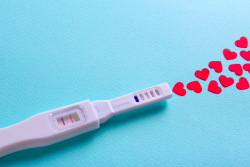In an interview with Dr. Tracy Malone, she discussed whether the birth control pill can impact fertility or contribute to infertility or menstrual disorders.
Dr. Tracy Malone ND:
One of the most common scenarios that I see come in is a woman in her adolescence or young 20s has either irregular menstrual cycles or very painful menstrual cycles or acne let’s say. And she goes to her family doctor and oftentimes the knee-jerk prescription for that is an oral contraceptive pill. And so she’ll start taking that as early as 15 or 16 years of age, and she’ll continue to take that well into her 20s, maybe into her 30s. And it really does mask any type of pathology.
So she has no idea if her menstrual cycles are regular or painful, or if she’s ovulating or capable of ovulating, because she’s been on the birth control pill for 10, 15 years. And then she decides to come off and she can’t get pregnant right away, and it’s sheer panic. That sometimes can be really messy because we have no context of history because she’s been on a birth control pill for such a long period of time.
Dr. Tracy Malone ND:
So that would be also an area that I would consider. Why are you taking contraception? When was the last time you actually ovulated?
So it has become so normalized I think that that’s what you do in your 20s. But I think that from a fertility standpoint, there’d be a lot more early diagnostics happening if we didn’t have that in play. There’s absolutely a time and a place for oral contraceptives. I’m not saying that they’re not useful, but I do see it being a real problem for identifying women at a young age that have fertility problems because we don’t know. It’s like a masked cycle in a sense.
Book an appointment today to learn more about preconception care and your fertility.









